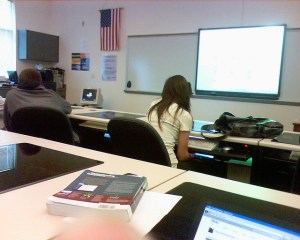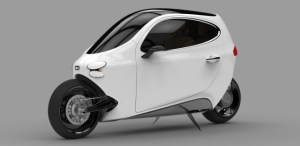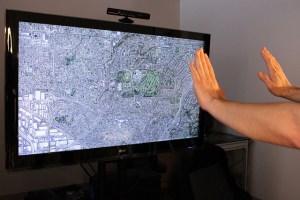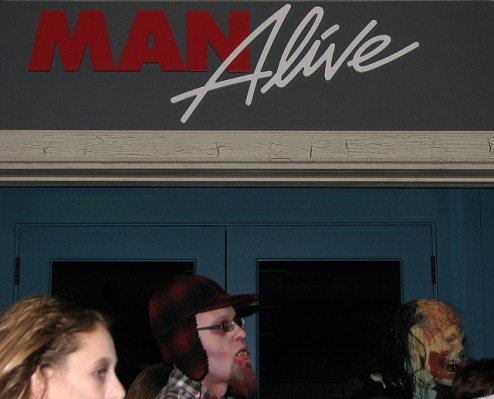Just when you think that we’ve innovated all that we can, something new comes along and completely blows our mind. It could be an advancement in hardware, software or just a new way of thinking of things. Humans are pretty resilient when it comes to thinking up new things to tinker with and making our lives easier.
This year was pretty awesome when it comes to innovation, and not the innovation that you might be thinking of. There was no “next big thing” to speak of, meaning there was no new big company to take attention away from Apple, Google, Facebook and Microsoft. That’s ok, though, because there were plenty of companies that looked at what we do on a daily basis, and found new and cool ways to make it more fun or less time consuming. That’s innovation, too.
I think of what Lyft and Uber have done to make our rides around big cities more enjoyable and less stressful, and you have to look at what Lytro has done to the camera, as well as what Lit Motors will do for motor vehicles. This year was pretty exciting. For consumer apps, it might have been an off-year though. That’s ok, because there are plenty of places where innovation can happen in 2013.
Let’s talk about just a few of them.
Healthcare
 Being “one” with your personal healthcare regiment is something we’re lacking right now. There are services out there that can help guide your way as you navigate what treatments are best for you, what insurance policies will keep you safe and what you might be succeptable to in the future. But there’s a long, long way to go there.
Being “one” with your personal healthcare regiment is something we’re lacking right now. There are services out there that can help guide your way as you navigate what treatments are best for you, what insurance policies will keep you safe and what you might be succeptable to in the future. But there’s a long, long way to go there.
Eventually, you’ll be able to beam your full medical history from your phone or other mobile device, directly to an emergency room or new doctor. No longer will you have to wait for records to be sent over or labs to be read. They’ll all be right there, and medical professionals will have devices to support it, too.
We’re not super far off from that, but Apple and Google are making huge strides in what mobile devices can do. In the future, we need better software and technology applied to healthcare, and that alone will bring down the stress and worry of going for a checkup or perhaps finding out that you have a longterm illness to deal with.
It’s just not a sexy space to get into, and honestly scares a lot of folks. We’ll get there, though.
Education
 Goodness, there is a long way to go in schools when it comes to technology and software. Right now, everything is so cobbled together, that I can’t blame administrators for not wanted to switch away from legacy systems. The old mantra of “If it ain’t broke, don’t fix it” shines through in the education space, mostly because innovators haven’t spent the time to innovate there. Yes, there has been some things done, but this area is ripe for major disruption.
Goodness, there is a long way to go in schools when it comes to technology and software. Right now, everything is so cobbled together, that I can’t blame administrators for not wanted to switch away from legacy systems. The old mantra of “If it ain’t broke, don’t fix it” shines through in the education space, mostly because innovators haven’t spent the time to innovate there. Yes, there has been some things done, but this area is ripe for major disruption.
If you peel back all of the layers in what goes into our school system, there are so many inefficiencies that make our teachers frustrated, parents nervous and kids left behind. Technology can’t solve all of the world’s problems, but it can help you clean up the easier things that trip us up on a daily basis. Some people still have to log into Lotus to get their college grades, that’s nuts.
If we honestly spent our collective energies to make our school systems better with technology, teachers could focus on teaching and kids could focus on learning. More of that in 2013, please.
Transportation
 To most, Lyft and Uber seem like pipe dreams for their small-town areas. However, the idea of on-demand transportation, thanks to technology, is in its infancy. If you bundle this technology with some of the other sectors mentioned above, ambulances could run on a fully-mobile alert system, and schools could reach out to parents when things need to be discussed.
To most, Lyft and Uber seem like pipe dreams for their small-town areas. However, the idea of on-demand transportation, thanks to technology, is in its infancy. If you bundle this technology with some of the other sectors mentioned above, ambulances could run on a fully-mobile alert system, and schools could reach out to parents when things need to be discussed.
Again, some of this is already cobbled together, but there’s no real “industry” for technology-advanced transportation. If you want to throw in Lit Motors and Elon Musk’s Tesla, there is excitement brewing and money to be made.
And hey, don’t forget about that self-driving car from Google, it could honestly save lives one day.
Entertainment
 How do you watch TV and movies right now? It’s probably going to change dramatically in the next two or three years. Right now, we sign up for services that beam content to our various devices. We have to decide which device to buy, pick up and use. Yes, it sounds like a first world problem, but companies will start thinking of new ways to develop and distribute content based on the devices we have in our hands. Right now, we’re stuck in handling a multiple-distribution dilemma. That will disappear with innovation.
How do you watch TV and movies right now? It’s probably going to change dramatically in the next two or three years. Right now, we sign up for services that beam content to our various devices. We have to decide which device to buy, pick up and use. Yes, it sounds like a first world problem, but companies will start thinking of new ways to develop and distribute content based on the devices we have in our hands. Right now, we’re stuck in handling a multiple-distribution dilemma. That will disappear with innovation.
As far as books and magazines go, Apple, Google and Amazon have just begun to scratch the service on distributing these types of media. As more startups get involved in being the middle-men for distribution, amazing things can happen. Remember when Amazon acquired Zappos? It had a lot to do with culture and its e-commerce mechanisms.
We’ll be able to move things around with our hands, interact with each other more and enjoy life like it was intended to be enjoyed.
Boring? Nah
Our own Michael Arrington said he was bored, but what he was really saying is “Step it up, entrepreneurs, don’t stand pat now.” That’s good advice, because just when you settle into a groove of shipping crappy apps that replicate what others are doing, there are a lot of cycles wasted on something that could be used elsewhere.
If you’re building a photo-sharing app, why not think of how to adapt it to higher education, special education or the healthcare industry? Yes, it sounds like a chore, but the hardest things are the things worth doing. We’re moving away from the “quick hits” like Instagram and Snapchat, and just starting to sink our teeth into bigger, wordlier problems. That takes time and it won’t happen overnight.
If more startups focused on solving the seemingly little problems that give consumers the most grief, there’s a lot of money to be made there too. For everyone involved.
It’s not boring, it’s just the beginning.
